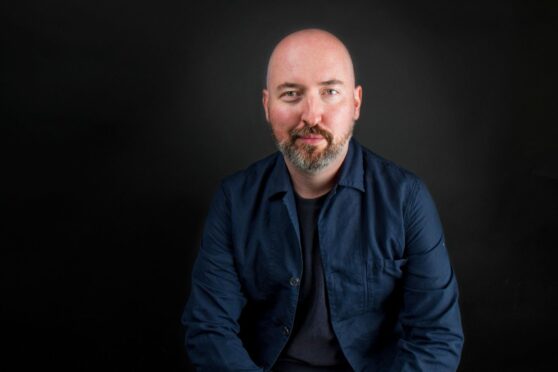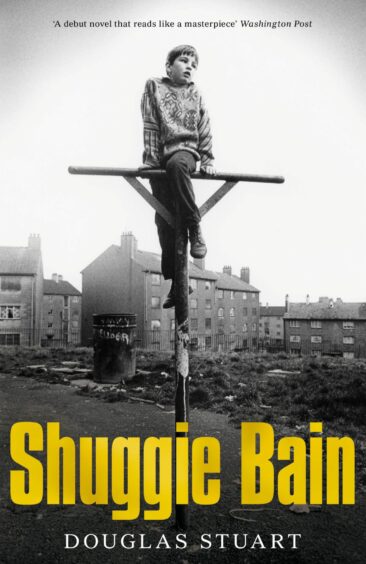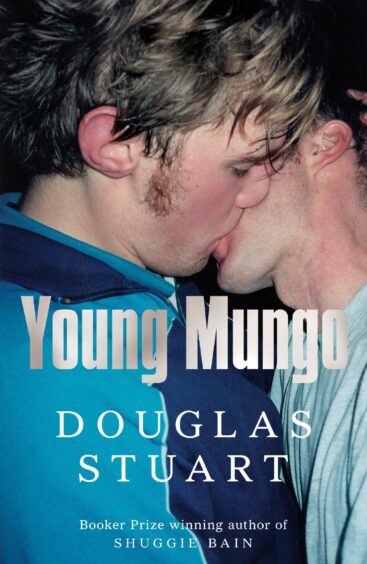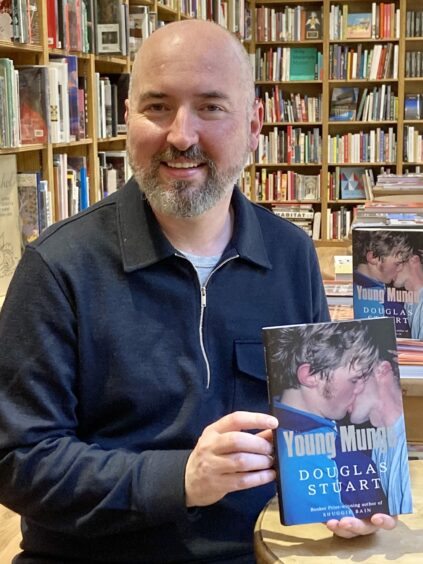For bestselling authors like Douglas Stuart, TV adaptations are the new movie deals.
But for the Glasgow-born novelist – known for his Booker Prize winning debut Shuggie Bain, and acclaimed follow-up Young Mungo – small-screen storytelling is more than just a mark of commercial success; it’s an homage to his upbringing.
“We weren’t a family that had any books at home,” says Stuart, 47, candidly. “So telly was really important to me as a kid.
“We gathered around television and that was how we got our stories.”
Currently, BBC and A24 are working with Stuart on adapting both of his semi-autobiographical novels for television, with the author himself taking on the role of screenwriter for Young Mungo.
But he admits he was hesitant to dive back into the world of post-Thatcher poverty in 1980s Glasgow; the world of his childhood that he’d rebuilt in his books.
It was the idea that his stories could reach people like him, who didn’t have access to books, that swayed him.
“When I was approached to adapt my work, I wasn’t sure I wanted to spend more time with my characters,” he explains.
“But then I realised that it was an opportunity to connect with people that might not read Shuggie or Mungo, but would still get something out of the story.
“What’s been really wonderful about A24 and the BBC is they’ve allowed me to expand on [Shuggie Bain] a little bit, and to tell different facets,” he continues.
“Because one of the most important characters in the book was actually Leek Bain, the middle son, who really is that young man who was so sure he was going to have a solid future in 80s Glasgow.
“He was really the generation that was affected by the mass unemployment and the shutting of industries. So it’s been good to give him more of a voice.”
Poverty and addiction not ‘historical fiction’
Indeed, Stuart is all too aware that the poverty, addiction and disillusionment which afflicted his community of tenements 40 years ago are all still prevalent in Scottish society today.
“I’m constantly being told ‘but everything’s better, everything’s improved’, and I don’t think that’s necessarily true,” he observes.
“With the cost of living crisis, I think a lot of people who felt like they were making progress in life have been really knocked back.
“I had imagined I was writing historical fiction, about a time and place that didn’t exist,” he continues.
“But Shuggie and Mungo’s reception in the world tells me that these themes still echo on and people are still living lives that mirror the characters’.”
And although the author finds the overwhelming relatability of his writing ‘heartbreaking’, he hopes that telling his story will encourage others to share their own without being accused of peddling poverty porn.
“The truth is that I grew up in poverty and I’m not ashamed of that in any way,” states Stuart.
“I think there’s an enormous amount of dignity in detail, and I think commentary of ‘poverty safari’ has kept so many voices silent over the years.
“I don’t actually think you understand the history of a place until you hear the voices of people who have grown up in poverty there.”
Shuggie and Mungo actors must be ‘unknowns’
The Shuggie Bain adaptation is well under way, and Stuart is understandably tight-lipped about the inner workings of the on-screen story.
However, one thing he’s very open about is his desire for his main characters, in both Shuggie Bain and Young Mungo, to be played by ‘unknown’ actors from his home city.
“They have to be unknowns from Glasgow, I think,” he says.
“Because it’s not just about understanding the world and understanding the characters, but there’s a movement to working class bodies. There’s a way we carry ourselves and I want to capture that as well and have it feel authentic.”
Queer voices ‘have always been here’
For Stuart, authenticity is a constant fascination – and a sticky subject.
Growing up gay in a Glasgow scheme so rife with machismo, intolerance and closed-mindedness that to be openly himself would put him in danger, the author was forced to put on a performance to survive.
“I always felt, as young man, that I was performing my masculinity,” he recalls.
“I was trying, with everything that I had, to fit in with the men around me, whether that was with heavy work or heavy fighting, heavy drinking, loving football, that kind of thing.
“Maybe they didn’t like those things either,” he muses. “Masculinity, the narrowness of it – that hurts everybody.”
As was the story of many young queer people at the time, Stuart eventually left the city for NYC, pursuing a career in fashion after studying textile design in Galashiels.
But he works hard in Young Mungo to show the struggle of queer people who cannot – or don’t want to – leave their intolerant environments.
And as protagonist Mungo and his love interest James try to navigate their fledgling relationship under the watchful eyes of the scheme, lonely, terrorised bachelor Chickie is the cautionary tale they are each trying to avoid becoming.
“I think especially in Scottish writing and in society in general, the best thing queer voices could be for the longest time was invisible,” he says bluntly. “That was the safest.
“That’s where the character of Chickie comes from. He’s just this man who is so of the city but who’s also of a time where he can’t live an out and proud life.
“There’s many great works of fiction written about the 80s and 90s in Glasgow. But it’s often written from a heterosexual male point of view.
“I wanted to add to that canon with Mungo, and just say: ‘Look, we’ve always been here too.’
“That’s why I named him after the patron saint of the city…to say that he belongs very deeply in this city, we just never hear stories from people like him.”
Shuggie Bain is being adapted for television by BBC and A24 with a release date to be announced. Both novels are available now from all major retailers.





